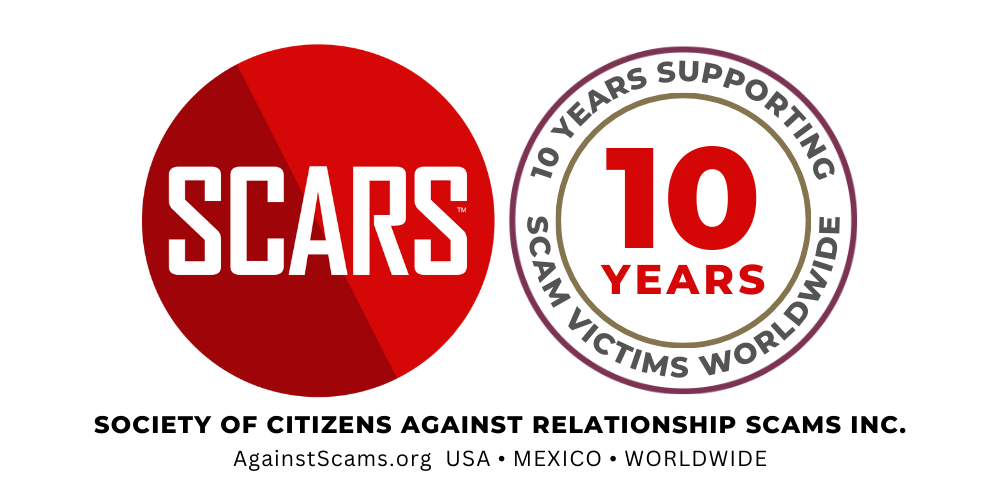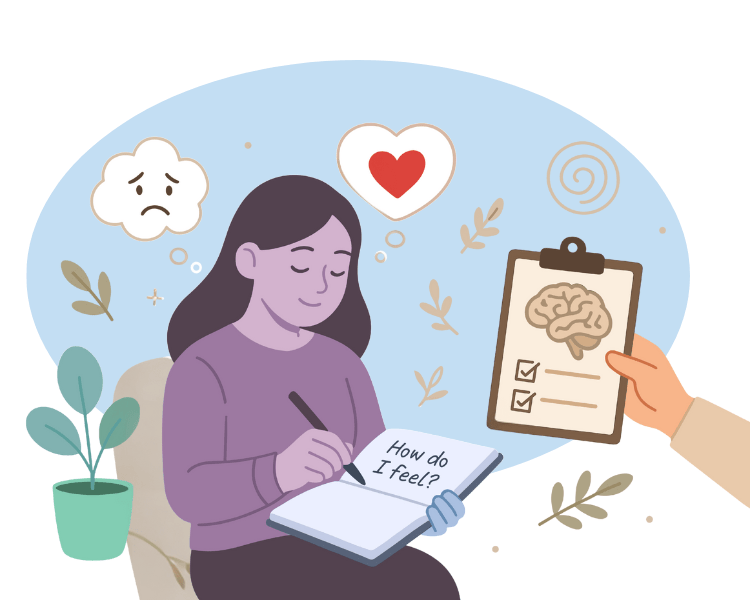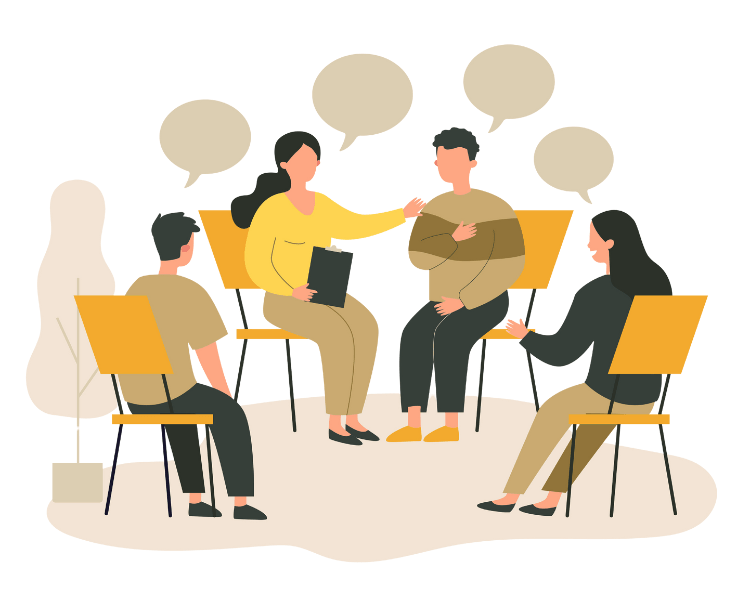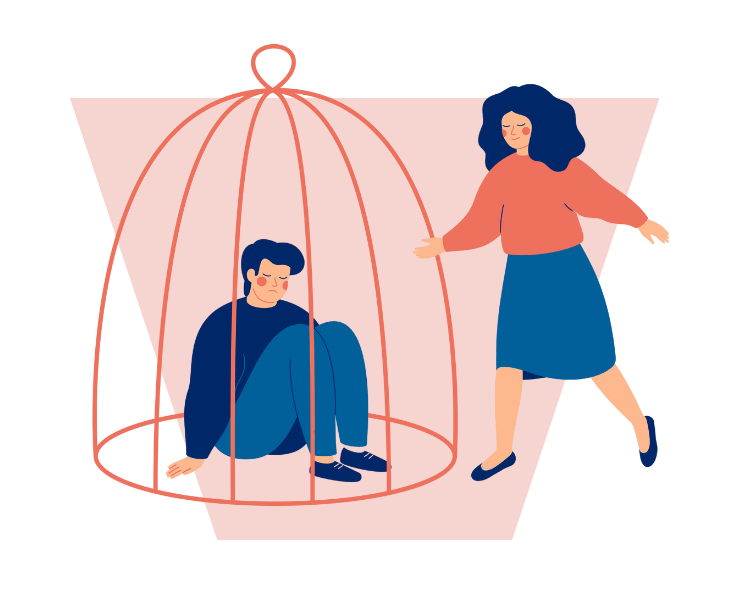
SCARS Institute First 3 Steps For New Scam Victims 2025
A Guide for New Scam Victims – What to do to end the Scam
Help to End the Scam and Begin Again
Key Topics:
-
STEP 1: Stop All Communications!
-
STEP 2: Accept That You Were Scammed
-
STEP 3: Focus Only On Yourself
Are You A Scam Victim – Now What?
This Is A Very Confusing Time For Scam Victims But We Have The Answers!
Your scam has just ended and you will be in shock, confusion, fear, and anger. You will be unsure about what to do now.
We have helped millions of scam victims, and we know that it comes down to THREE (3) BASIC STEPS.
This is a guide to help new scam victims understand what to do first and how to proceed with recovery!
First Thing
You need to understand that this was not your fault, and you are not to blame.
Do not feel ashamed of what happened. The scammers are professionals – yes scammers, there was more than one – they work in teams. They are expert manipulators, and you were not prepared.
Time is important after you discover the scams – there is a limited window for the police to act to help recover your money, depending on how it was sent. Learn more here. Also, if it was a crypto-based scam, your local police can, in very many cases, trace the lost cryptocurrency and recover it. Act now!
This is going to be hard, and most victims give up or give in to anger. But if you are willing to do what needs to be done, you can recover from this. Remember that the trauma from a relationship scam is very real and it will not simply go away – you will not just get over it – you will need help. Make sure you get it!
When the time comes to talk with your family & friends, click here for how to do that correctly, so they will not blame you. Also, see our videos on our YouTube channel here.
You will also find our self-help books available at shop.AgainstScams.org
THE SCARS 3 STEPS™
STEP 1: Stop All Communications!
You must block all contact with your scammers and do not accept friend requests or message requests or contact from people you do not know personally. Mark any email from scammers or strangers as spam. Try not to look at anything from the scam, save it in a folder, and do not look at it again except to be able to report it to law enforcement.
If you lost money: the way to report this is first with your local police – they are your first responders, then always report all scams to the FTC – visit reporting.AgainstScams.org to learn more.
If you did not lose money just report the fake profiles to Facebook or Instagram – and optionally to the FTC as well.
STEP 2: Accept That You Were Scammed
This means that you have to accept that you are the victim of a crime. Scams are crimes even if you did not send money. It is all about the deception, it was all lies. Nothing that you were told is the truth, so none of the stories or promises matter anymore because they were all lies. This is hard to accept, but it is what you have to do to be able to move forward.
As part of this STEP, you will need to report it to the police (see above) – this is your confirmation to yourself that you accept that you were scammed, and that it was all a lie. You start with your local police – this is not easy, you will feel embarrassed and ashamed, but you do not need to. The police are not always going to be sensitive to scam victims, and they may not be able to do anything to get your money back or stop that scammer, but reporting matters regardless. Tell them you just need to report it and get a report number – this is your proof to yourself that you accept that this happened, and you may need it if reporting it to your national police or the FBI later.
Once this is done, put it all away, and don’t look at it again if possible.
You should sign up for one of the SCARS Support & Recovery groups at support.AgainstScams.org
STEP 3: Focus Only On Yourself
Do not try to track down or contact the real person who is in the photos, because you do not have a relationship with them and they are a victim too. Your relationship was just with the scammers – notice we said scammers – because scammers work in teams, there are almost never single scammers anymore. Try to separate the past from your future – hard as that will be.
Now you need to focus on your own emotional health and stability. Scams can be very traumatizing and they can lead to serious mental illness unless you take care of yourself. The scam happened, but now it is time to turn your back on that and focus on yourself and how you are going to move forward and recover.
We recommend that you take two immediate actions to help yourself:
- Join one of our support groups or forums: go to support.AgainstScams.org and apply for our free support & recovery program for scam victims.
- If you feel you need someone locally to talk to we recommend that you seek a local trauma counselor. If you are looking for local trauma counselors please find one here at counseling.AgainstScams.org
Additionally, SCARS offers free counseling or therapy as a benefit with our SCARS Gold Membership. To learn more about this go to membership.AgainstScams.org
You do not need to tell your family or friends at this point unless you need to – that can wait until you are feeling stronger.
The process of recovery will take some time – it depends on how long you were in the scam and the depth of the trauma you are experiencing. Do not try to rush it and do not assume you will get over it instantly. Most scam victims will need months and sometimes longer to return to emotional stability. How seriously you take your recovery will determine how successful you will be – there are no shortcuts. It is hard and it takes work.
A Word About Fear
Many scam victims are in fear after the scam ends. You might be afraid of the scammer’s threats or something else. Scammers are business people and they only do what gets them money, they will not waste time on anything else. So you do not need to be afraid – remember that scammers ONLY tell lies. But if you really feel fearful tell your local police about this too.
If You Need To Talk To Someone Right Now
If you feel that you must talk to someone right now call this number (in the U.S. & Canada): DIAL 988 / 1-800-273-8255 – it is available 24 hours in English and Spanish. To find other crisis hotlines for your country search on Google for “Crisis Hotline.” Remember, there is no shame in asking for help. You will find more in the SCARS Resources below.
Lock Yourself Down
After the scam, you will need to make sure that you lock down your social media profiles to ensure that scammers cannot see your life anymore! Go through your privacy settings and change anything public to private.
Also, if you have shared any financial or banking information with your scammers you will need to protect those accounts. Contact your bank and notify them you have been scammed and change your account numbers and access information – do this for anything that you think might be at risk.
To Learn More
At this point, you have to focus on learning to better understand what happened to you. You are a victim, but that does not mean you are an expert in scams. Learning is an essential part of controlling your fear, anger, and confusion. It is part of your recovery process.
We recommend that you begin learning here on our SCARS Official Educational Website: RomanceScamsNOW.com and on SCARS ScamsNow.com
You will find thousands of articles about scams and scammers to help you better understand how all of this works. Start with the Psychology of Scams section to understand how this works for you.
The 3 Steps™ is a part of the SCARS Steps™ Scam Victim Self-Help Recovery Program – Copyright © 2015-2025 SCARS
SCARS Support & Recovery
- If you are a victim of scams, go to www.ScamVictimsSupport.org for real knowledge and help
- Enroll in SCARS Scam Survivor’s School now at www.SCARSeducation.org
- To report criminals, visit https://reporting.AgainstScams.org – we will NEVER give your data to money recovery companies like some do!
- Follow us and find our podcasts, webinars, and helpful videos on YouTube: https://www.youtube.com/@RomancescamsNowcom
- Learn about the Psychology of Scams at www.ScamPsychology.org
- Dig deeper into the reality of scams, fraud, and cybercrime at www.ScamsNOW.com and www.RomanceScamsNOW.com
- Scam Survivor’s Stories: www.ScamSurvivorStories.org
- For Scam Victim Advocates visit www.ScamVictimsAdvocates.org
- See more scammer photos on www.ScammerPhotos.com
Important Things For Scam Victims To Know
- Importance Of Starting Off Right For New Scam Victims
- Importance Of Journaling For New Scam Victims
- Importance For Scam Victims Of Support & Recovery Group
- Importance Of Learning For Scam Victims Recovering
- Importance Of Trauma Therapy For Scam Victims
- Importance Of Scam Victims Avoiding The Vigilante Trap
- SCARS 3 Steps For New Scam Victims
- Every New Scam Victim Needs To Understand What To Do Next!
- Scam Victims Reporting Scams And Interacting With The Police
- Essential Information for New Scam Victims on SCARS RomanceScamsNOW.com
- Learn More on SCARS ScamsNOW.com




















![niprc[1]](https://scamvictimssupport.org/wp-content/uploads/2024/01/niprc1.png)
Moving through these 3 steps empowered me knowing that I was doing something to get through this difficult experience. Steps 1 and 2 have their challenges but it seems like step 3 where I am now is going to be an ongoing endeavor. Thank you SCARS for the excellent guidance you provide!
I did all three steps except I did the police report before taking care of myself. The police highly doubted that I would get any money back, because I had used Walmart VISA gift cards. They told me they are hard to trace. I was sad about that, but mostly sad that I had hurt my husband Chuck badly. I saw in a text last week that he had forgiven me. That was the first time it was ever brought up. At least now I finally know he has forgiven me, that feels really good as well.